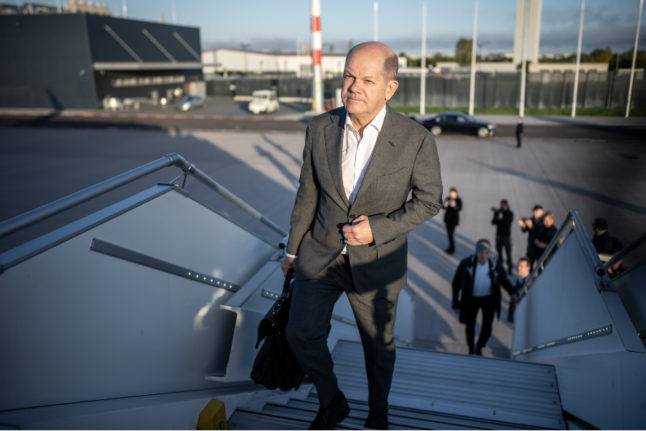It would be the first visit by a foreign head of state to Israel since the assault, which has sparked a war between Israel and Hamas.
Scholz has pledged full support for Israel, saying last week that Germany’s “only place” right now “is at Israel’s side”.
German broadcaster NTV, citing government sources, said Scholz’s visit could come as early as Tuesday. The fate of German nationals kidnapped by Hamas during the attack 10 days ago is expected to be among the topics of discussion, it added.
READ ALSO: Germany opens probe into suspected kidnap and murder of its citizens by Hamas
The top-selling Bild newspaper said the trip could take place “in the coming days”.
The German government did not immediately confirm the visit. German Foreign Minister Annalena Baerbock already travelled to Israel on Friday. At a press conference with her Israeli counterpart in Jerusalem, she condemned Hamas for using residents as a “shield”.
Israel declared war on the Islamist group a day after waves of its fighters broke through the heavily fortified Israel-Gaza border on October 7th, shooting, stabbing and burning to death more than 1,400 people, most of them civilians.
Israel responded with a relentless bombing campaign of the Gaza Strip that has flattened neighbourhoods and killed at least 2,670 people, mainly civilians. More than one million people have fled their homes as Israel prepares a major ground operation in Gaza.
READ ALSO: Germany prepares to evacuate thousands of citizens from Israel




 Please whitelist us to continue reading.
Please whitelist us to continue reading.
Member comments